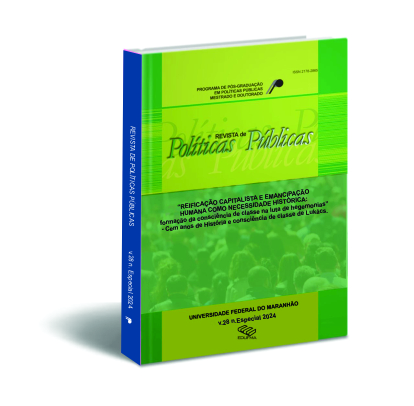ALLENDE'S CHILE AND THE SOCIALISM OF THE SIGLO 21
DOI:
https://doi.org/10.18764/2178-2865.v28nEp.2024.9Keywords:
Chávez, Cuba, Allende, State, ImperialismAbstract
Until the election of Salvador Allende in 1970 and the experience of the Popular Unity in Chile, the dominant political strategy of revolutionary transformation in Latin America was the Cuban model, that is, the seizure of power by armed
assault followed by the dismantling of the bourgeois state and thus proceeding to the construction of socialism. The brutal coup d'état that overthrew his government and assassinated Allende in 1973 seemed to confirm that the 'peaceful road to socialism', that is, through the vote, led to failure and defeat, legitimizing the Cuban way. The Sandinista revolution of July 1979 also seemed to confirm, in a lapidary manner, that the only path to revolutionary socialist transformation was the Cuban one ... until 1990, when Sandinismo was defeated at the ballot box, after a war of attrition lasting almost ten years.
Thus, the Cuban paradigm, ratified by these two defeats, the first historical and the second perceived as definitive, was suddenly 'dethroned' from its apparently unassailable primacy by the Bolivarian phenomenon led by Hugo Chavez in Venezuela in 1998. The key issue that these political processes have in common is the imperative need for the development of a state that not only allows for the construction of a socialist economy - a complex and slow process determined by the underdeveloped character of Latin American economies - - but one in which the legitimate monopoly of violence is exercised in the national territory, not only to enforce decisions in favor of the majority of the people, but to defend them both from the inevitable attacks of the ruling classes, once in power, as well as to defend national sovereignty from the also inevitable attacks of imperialism, especially of the United States. There is no doubt that the 'peaceful, but not unarmed' (in Hugo Chavez's apt phrase) Bolivarian revolution has structurally transformed the class nature of the Venezuelan state, by means of elections, without having to resort to the Cuban insurrectional model. In other words, to successfully combat neoliberal
capitalism, the question to be resolved is in the interest of which social class the state exercises the legitimate monopoly of power in the territory of a nation.
Downloads
Downloads
Published
How to Cite
Issue
Section
License

This work is licensed under a Creative Commons Attribution-NonCommercial-NoDerivatives 4.0 International License.
UNIVERSIDADE FEDERAL DO MARANHÃO
PROGRAMA DE PÓS-GRADUAÇÃO EM POLÍTICAS PÚBLICAS
REVISTA DE POLÍTICAS PÚBLICAS
Termo de Transferência de Direitos Autorais
Como condição para a submissão, os autores devem declarar a autoria do trabalho e concordar com o Termo de Cessão de Direitos Autorais, marcando a caixa de seleção após a leitura das cláusulas)
- Declaro que participei da elaboração do trabalho referido, em parte ou no todo; que não omiti qualquer ligação ou acordo de financiamento entre os autores e instituições ou empresas que possam ter interesses na publicação desse trabalho;
- Declaro tratar-se de texto original, isento de compilação, em parte ou na íntegra, de minha autoria ou de outro (os) autor (es);
- Declaro que o texto não foi enviado a outra revista (impressa ou eletrônica) e não o será enquanto a possibilidade de sua publicação esteja sendo considerada pela RPP;
- Declaro que transfiro os direitos autorais do trabalho especificado para a RPP, comprometendo-me a não reproduzir o texto, total ou parcialmente, em qualquer meio de divulgação, impresso ou eletrônico, sem prévia autorização dessa Revista.
- Declaro que tenho conhecimento que a cessão do texto à RPP é gratuita e, portanto, não haverá qualquer tipo de remuneração pela sua utilização.

Este obra está licenciado com uma Licença Creative Commons Atribuição-NãoComercial-SemDerivações 4.0 Internacional.







